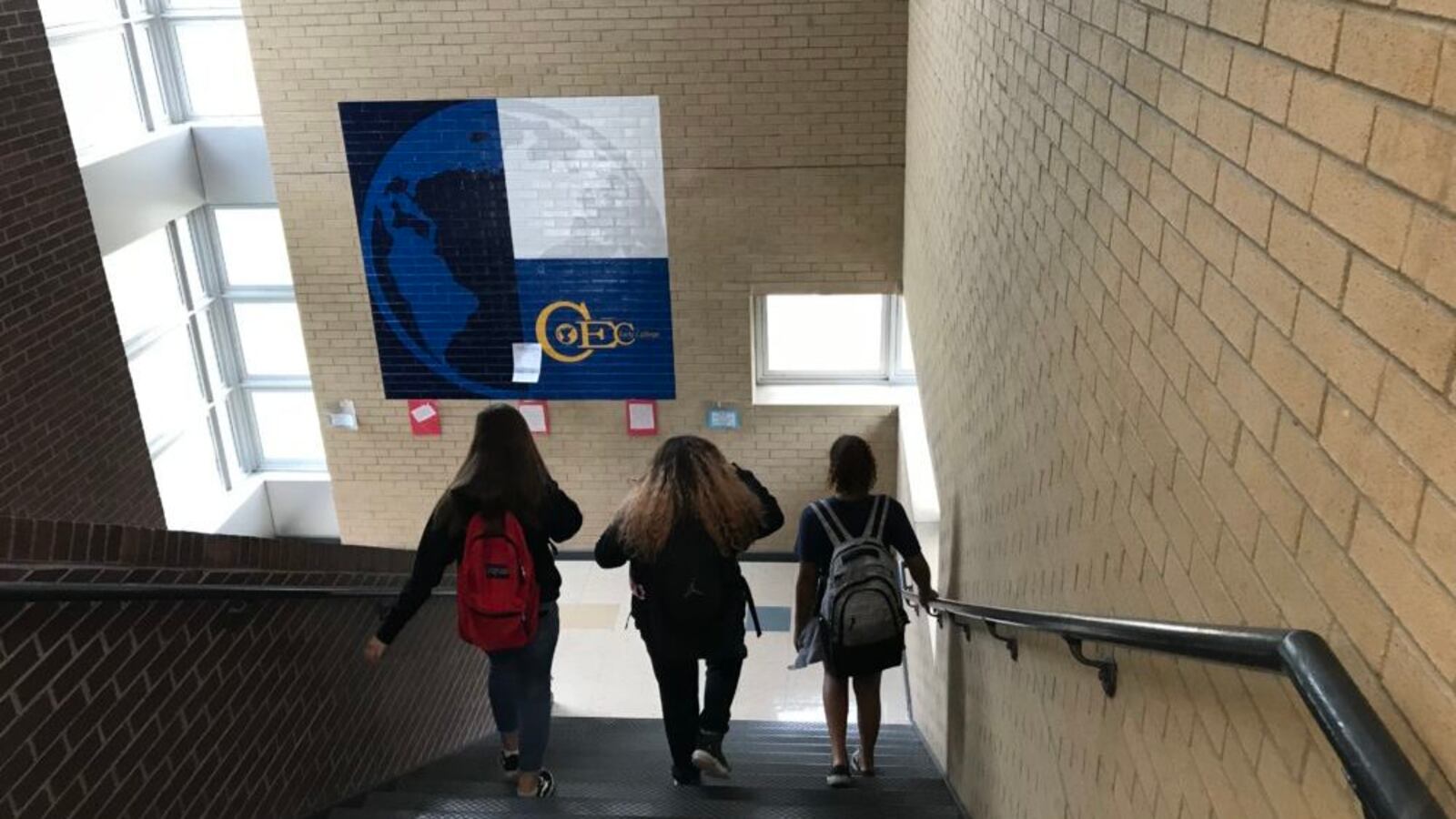A new $10 million grant will allow 10 Denver high schools to spend the next two years identifying barriers to graduation for black and Latino students, as well as for students from low-income families — and testing various ways to remove those barriers.
To start, “each school is really looking at what is the biggest problem they want to solve, and what are the small steps they can take to solve them,” said Denver Public Schools Superintendent Susana Cordova, who has made equity a focus of her first year as district leader.
The problem could be low attendance rates, for example, or high failure rates in ninth grade math. The idea is that all 10 schools will decide on a single problem to tackle. Then each school will test various solutions to see what works, what doesn’t, and what could be expanded to all of Denver’s 38 district-run high schools over the next five years.
The grant is from the Bill and Melinda Gates Foundation, and is part of a larger effort by the foundation to improve schools by grouping them together to solve problems.
The effort represents a shift by Gates, which successfully promoted controversial ideas like Common Core and teacher evaluations linked to test scores. The foundation says its new approach invests in educators on the ground to identify their own problems and solutions. (Gates is a funder of Chalkbeat.)
Black and Latino students in Denver are less likely to graduate on time than are white students. In the 2017-18 school year, 67% of black students and 68% of Latino students graduated within four years of starting high school, according to the most recent state data available. That same year, 78% of Denver’s white students graduated within four years.
Due to state law, the graduation rules are about to change. Starting with the class of 2021, who are currently high school juniors, students wanting to graduate will have to demonstrate proficiency in English and math, as well as earn a certain number of high school credits.
Denver Public Schools students can demonstrate proficiency in a variety of ways, from passing concurrent enrollment college-level courses to completing a capstone project.
The grant will help Denver high schools ensure more black and Latino students, and students from low-income families, meet the rigorous new graduation requirements, district leaders said. Although the 10 schools have until January to come up with a common goal, principals gathering at a grant announcement Tuesday shared some of the problems they’re exploring.
CEC Early College high school is looking into why half the male students in its freshman class are failing at least one class, even if they do well on standardized tests.
West Early College high school is asking why some of its students say they don’t feel they belong in the school’s many concurrent enrollment college courses.
And educators at Bruce Randolph School are trying to understand why some of its graduates struggle in their freshman year of college.
Much of the grant money will go toward releasing staff from their normal duties to work together on addressing these issues, and on training staff to put the solutions in place, officials said. Several principals said the opportunity to collaborate is something they don’t often get.
“It’s because of this focus on collaboration, on equity, and on instructional excellence that we will make a difference in the lives of our students and their families,” Cordova said.


